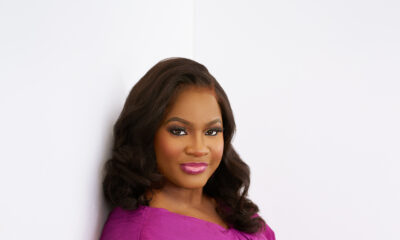Features
Sometimes, It Is Okay to Not Have an Opinion

Some days ago, a friend sent a screenshot of an argument on Twitter and asked for my thoughts. I told them ‘nothing’, and they seemed surprised. They asked, ‘what do you mean nothing?’ I responded, ‘I mean nothing’. And I meant nothing because I absolutely had no opinion on the matter. Sometimes, when an argument flies around the internet, I like to carefully evaluate all sides before forming an opinion. I try as much as possible to reflect on different sides and most times, I always realise that every side has a point. So, in an effort to try and form an opinion out of different opinions, I become opinion-less.
Meanwhile, I have also realised that there are situations where an issue does not concern one at all in any way. It’s a different thing when you struggle to form an opinion because there are multiple opinions; and it’s also a different thing when you know that you have absolutely no business with an issue for you to have an opinion. In the case of my friend’s tweet, I was unsure of what to think or which side to take at the time.
I used to believe that having an opinion on every issue was essential, thinking that in every argument or debate, one must pick a side. But as I learned more, I realised that maybe a debate shouldn’t even have occurred in the first place. In scenarios like a heated argument, if someone were to ask me which side I support, I might respond by saying that I have no preference for either parties. I’ve found myself hesitating to post a tweet or share an idea when I realise that it doesn’t cover different angles. It’s frustrating to read people’s carefully crafted opinions on a matter, only for it to turn out to be a well-worded statement devoid of substance.
I think there is an unpronounced pressure people feel which makes them think they should have an opinion on an issue. I believe that in some instances, “I don’t know what to say,” is a perfect response.
It’s important to have opinions and make self-made decisions, but it is also important to recognise that there are some issues that may not concern one and it is okay to not have an opinion on them. I often wonder if people feel pressured to engage in arguments, because, to me, jumping into debates without careful consideration can lead to polarisation. It also seems like society expects people to pick a side and have an opinion on something, even if they don’t fully understand the complexities of the issue. Like my friend asking me, ‘What do you mean nothing?’ I wanted to ask them why they thought I should have an opinion but it didn’t matter.
However, I believe there are stories and issues that require us to have an opinion or pick a side if we don’t want to be hypocritical. And maybe, just maybe, not having an opinion is also an opinion.
We should also understand that some stories can only be one-sided. For instance, someone stood up someday and started shooting at people. When they were arrested and asked why they did it, they said they were just being irrational and out of their mind. You would ask, why didn’t the irrationality drive them to kill themself? Or to jump into a river? Why does this irrationality have to come with the urge to harm other people? There are some unfair circumstances that can never be judged as being two-sided, and that is one of them. If they had been diagnosed of a mental illness, they’d have been given the necessary care. But how can they be rational enough to explain the irrationality? That doesn’t make sense.
Or someone who said they were hungry when asked why they started pickpocketing. Someone in that kind of situation should understand what it means to lose your money and what it means when your money is stolen from you. So in this instance, when your opinion is sought, you should have one. Not having one is simply being hypocritical.
But that’s not exactly my point in this essay. My point is for us to understand that trying to form or have an opinion is a delicate balance between thoughtful consideration and recognising the boundaries of our own knowledge. In a world inundated with information and impassioned debates, there should be no shame in admitting that we have no opinion or that an issue simply doesn’t concern us. By doing so, we can contribute to a more nuanced and empathetic discourse, one that values genuine understanding over the pressure to pick a side hastily. Sha, not having an opinion on some matters may be the most honest and meaningful stance we can take. Na my own be that.
***
Featured Image by Anete Lusina for Pexels























